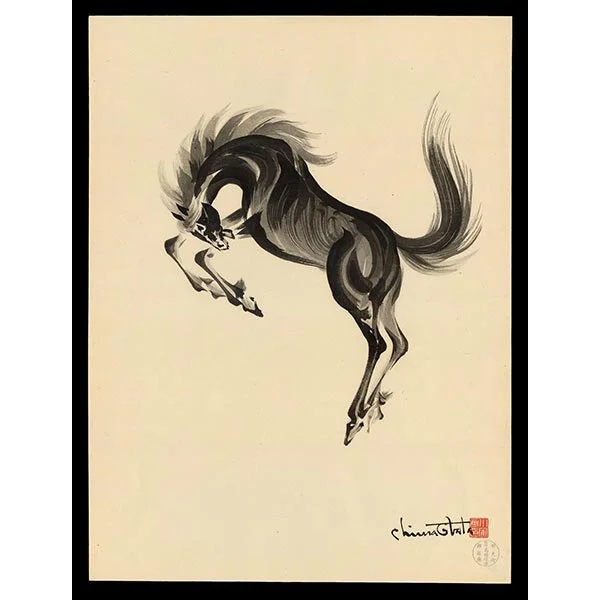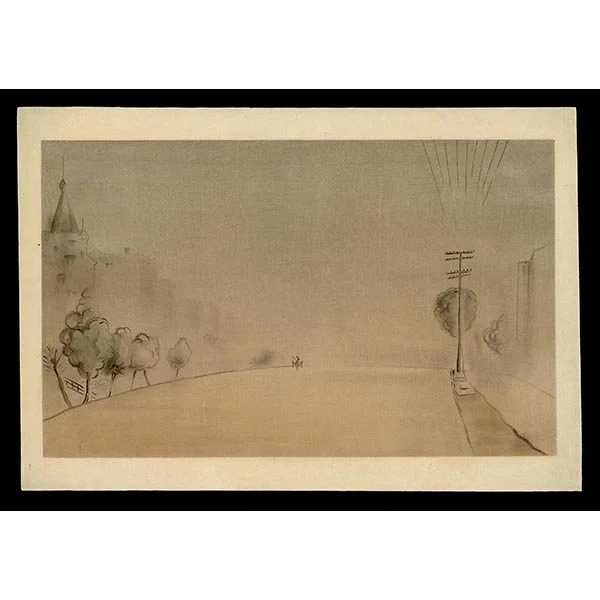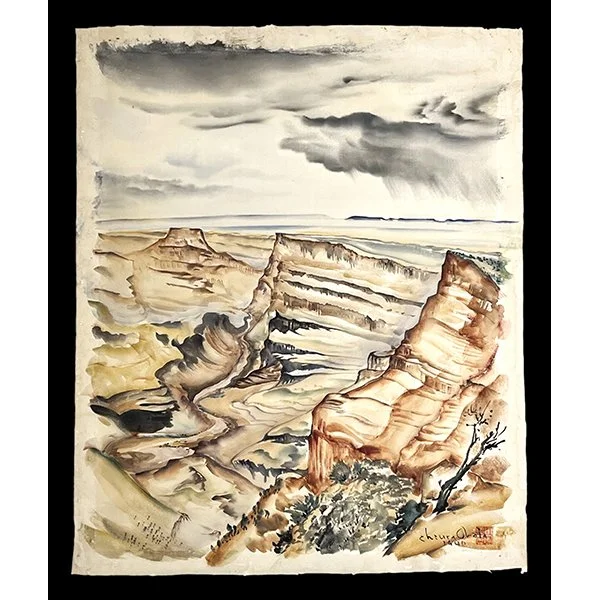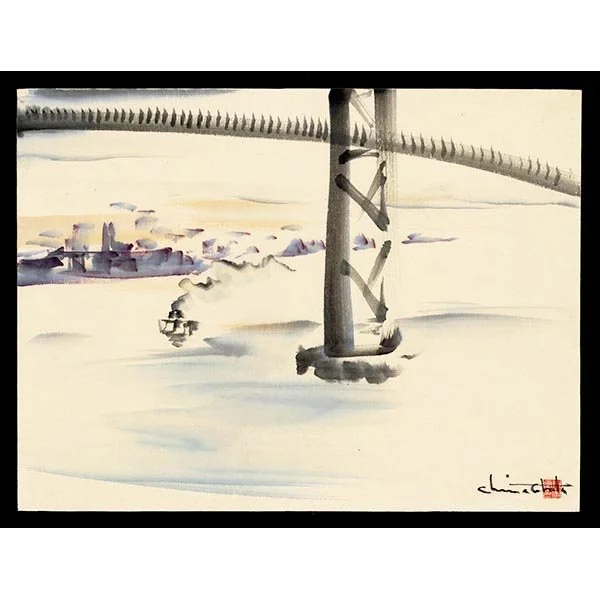Details
Chiura Obata, a pioneering Japanese-American artist, was born in Japan in 1885 and immigrated to the United States in 1903, eventually settling in California. Initially trained in traditional Japanese art, Obata’s exposure to American modernism profoundly influenced his style, blending Eastern techniques with Western innovation. His love for the natural beauty of the American landscape, particularly the Yosemite Valley, became a central theme in his work. His detailed paintings and woodblock prints of these iconic sites captured both their grandeur and tranquility, earning him widespread acclaim. However, his career took a harrowing turn when, during World War II, Obata was forcibly relocated to an internment camp for Japanese-Americans, where his resilience as an artist continued to shine, and his sketches documented the plight of his community. In recent years, Obata’s legacy has gained renewed attention, with major museum exhibitions now celebrating his unique contributions to both American and Japanese art.
In a relatively simple but charming composition, Obata conjures up a forest. The tree’s relative proximity suggests a relatively dense woodland landscape. The uneven ink wash of the leaves and branches provides a convincing sense of light, suggesting beams finding their way through the trees. This charming composition is as playful as it is psychological. Much like traditional Zenga, this painting is executed with an economy of brushstrokes, where the negative space within the composition births the work.
Connoisseur's Note
Though unsigned, the work is in Obata’s unmistakable hand. This painting was acquired from Obata’s next-door neighbor in Berkeley, California. Not unusual, Obata was quite generous with his artwork and often gifted his original work to friends, students, and neighbors.
More prints by Chiura Obata:










